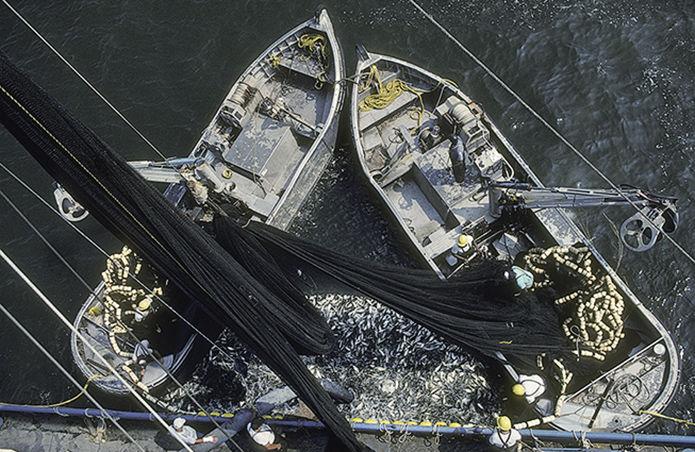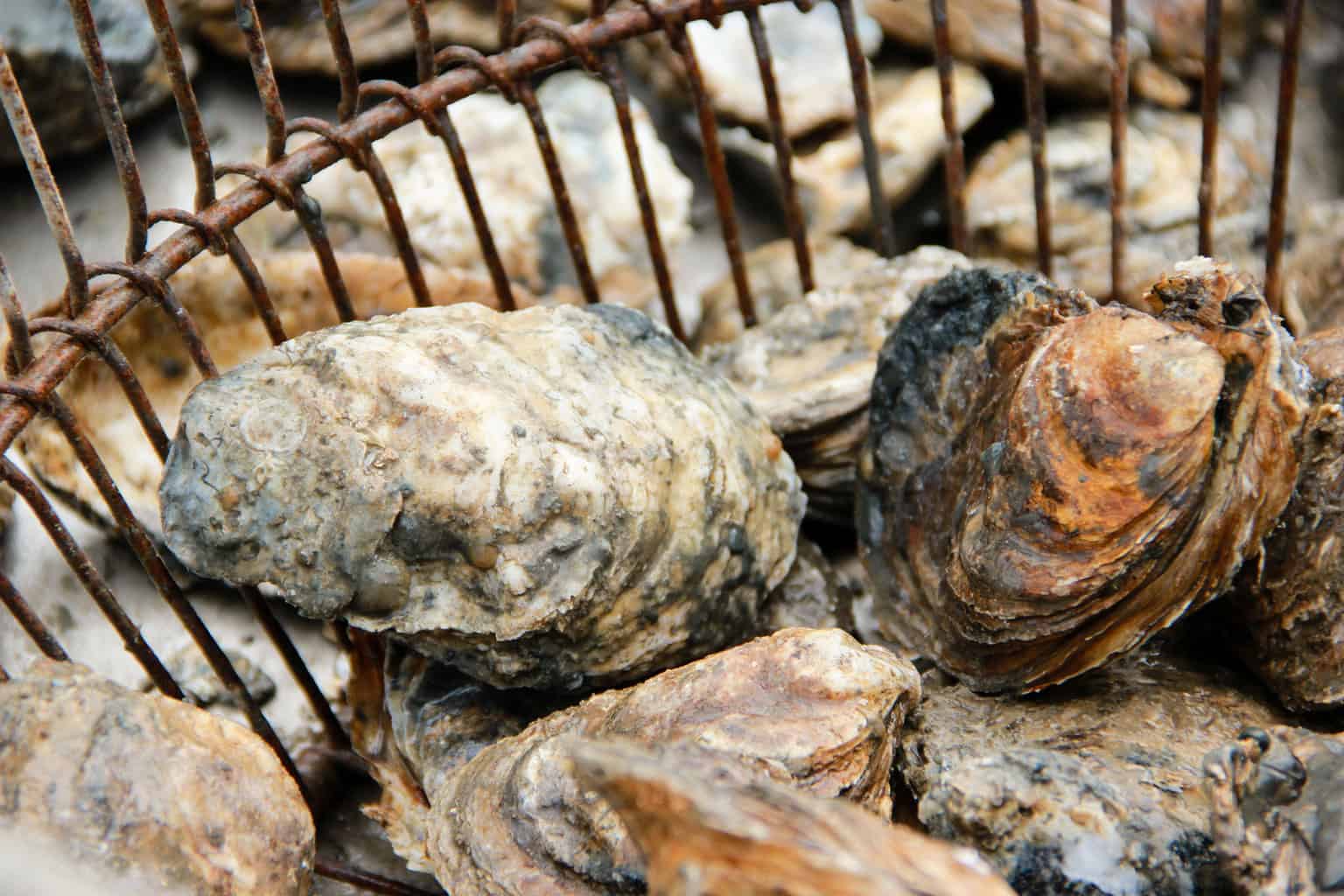By Whitney Pipkin, Bay Journal News Service
A coalition of groups representing recreational anglers and boaters has launched a campaign against certain types of commercial menhaden fishing in Virginia.
Together, 11 national and 10 Virginia-based groups sent a letter in mid-June to Gov. Glenn Youngkin asking him to move menhaden “reduction fishing” out of the Chesapeake Bay. Reduction fishing refers to commercial harvests of the oily baitfish to grind or “reduce” them into meal for use in pet food, vitamins and other products.
The groups, which include the Theodore Roosevelt Conservation Partnership, the Marine Retailers Association of the Americas and state and national sportfishing associations, are concerned that annual harvests of menhaden have “deprived gamefish like striped bass, bluefish and weakfish of a critical food source.”
The striped bass fishery is the largest marine recreational fishery in the country, the groups said, driving $166 million in recreational fishing activity in Virginia alone. But the economic value of striped bass fishing to the state has declined by more than 50% in the past decade, they said.
Striped bass stocks have been struggling for more than a decade, with anglers in the Bay recently facing an 18% reduction in striped bass harvest allowances.
Conservation and angler groups have long blamed the reduction fishery, based in Reedville, Va., for contributing to the striped bass decline.
The fishery, operated by Omega Protein, headquartered in Canada, harvests about three-quarters of all the menhaden caught along the East Coast. Measured by weight, menhaden are by far the largest harvest taken from the Bay.
But the impact of their harvest on striped bass in the Chesapeake is unclear. While menhaden constitute a sizeable portion of the diet of larger adult striped bass in coastal waters, studies show they are less important to those in the Bay where much of the striped bass population consists of juvenile fish that tend to eat smaller food species like bay anchovy.
Some scientists agree that menhaden should be managed in a precautionary manner while more studies are conducted on the overall ecological impact of annual harvests. The Atlantic States Marine Fisheries Commission, which regulates regional menhaden harvests, agreed in 2020 to cut the allowable commercial harvest of Atlantic menhaden 10 percent from what it has been the last three years. Additional changes could be in store this fall.
CBM Editor’s Note: The coalition against reduction fishing in the Bay launched their campaign just as an unfortunate bycatch incident came to light. At Virginia’s Kiptopeke State Park, a number of dead red drum, along with menhaden, washed up and forced the state park to be closed for cleanup. Visitors were shocked and some reported trying to bury the fish in the sand because the stench was so bad.
In a statement, Omega Protein said their fishing partner, Ocean Harvesters, was hauling menhaden with a purse seine net on behalf of Omega about a mile off Kiptopeke. The statement reads:
“While bringing the menhaden aboard the vessel, the captain attentively noticed a group of red drum in the net. He immediately instructed the crew to open the net and release the fish. The crew observed that many fish swam away, but the captain acknowledged that many fish likely died during the incident.”
Omega says bycatch in the menhaden fishery is rare. The company uses spotter planes to target schools of menhaden and avoid schools of other fish.
“The most likely explanation is the unusual situation in which a school of red drum swam beneath a school of menhaden, making them unobservable to the spotter pilot,” the statement says. The company said it was shifting from fishing operations to cleanup and monitoring the area.
The next spill came exactly three weeks after a previous incident of dead menhaden washing up on Virginia’s Eastern Shore. On July 5, Omega says a net became snagged and tore about a mile off Silver Lake, Va. and many dead fish were released into the water.
The two spills have served to add fuel to the angler groups’ call for a stop to “industrial” menhaden fishing in the Bay. The Theodore Roosevelt Conservation Partnership is circulating an online petition accompanying the letter to Gov. Youngkin.




